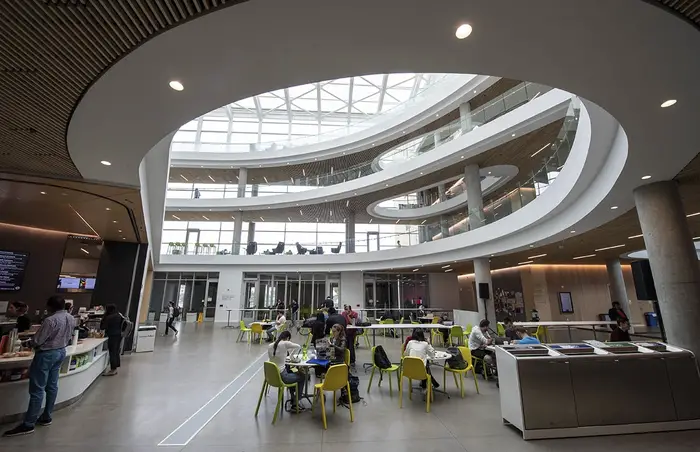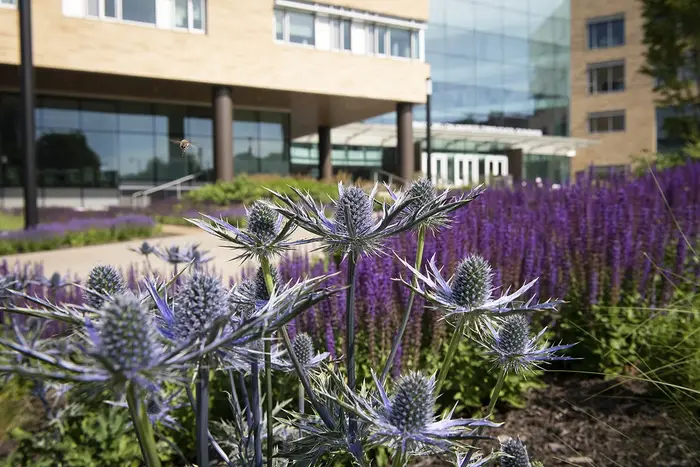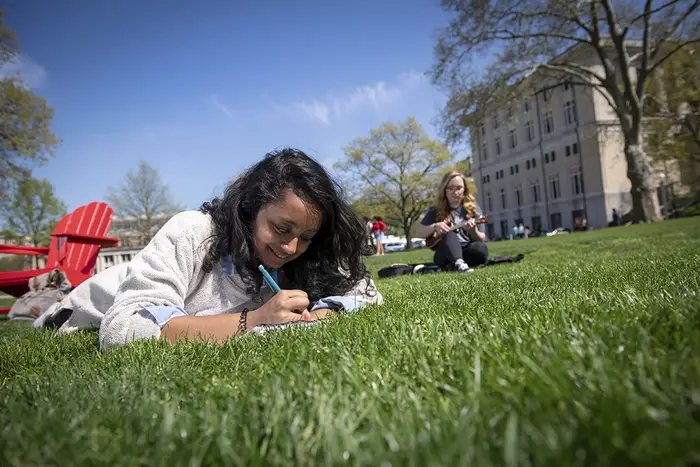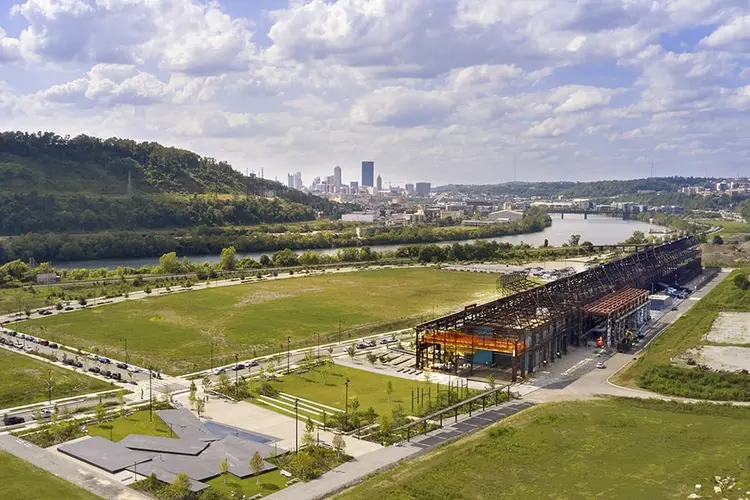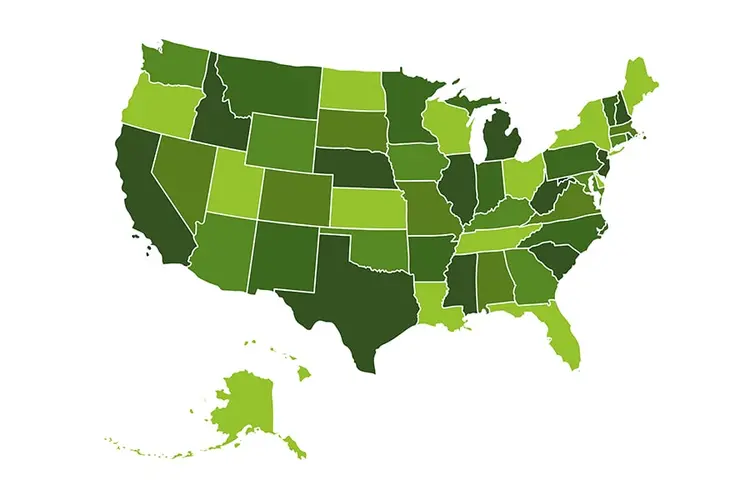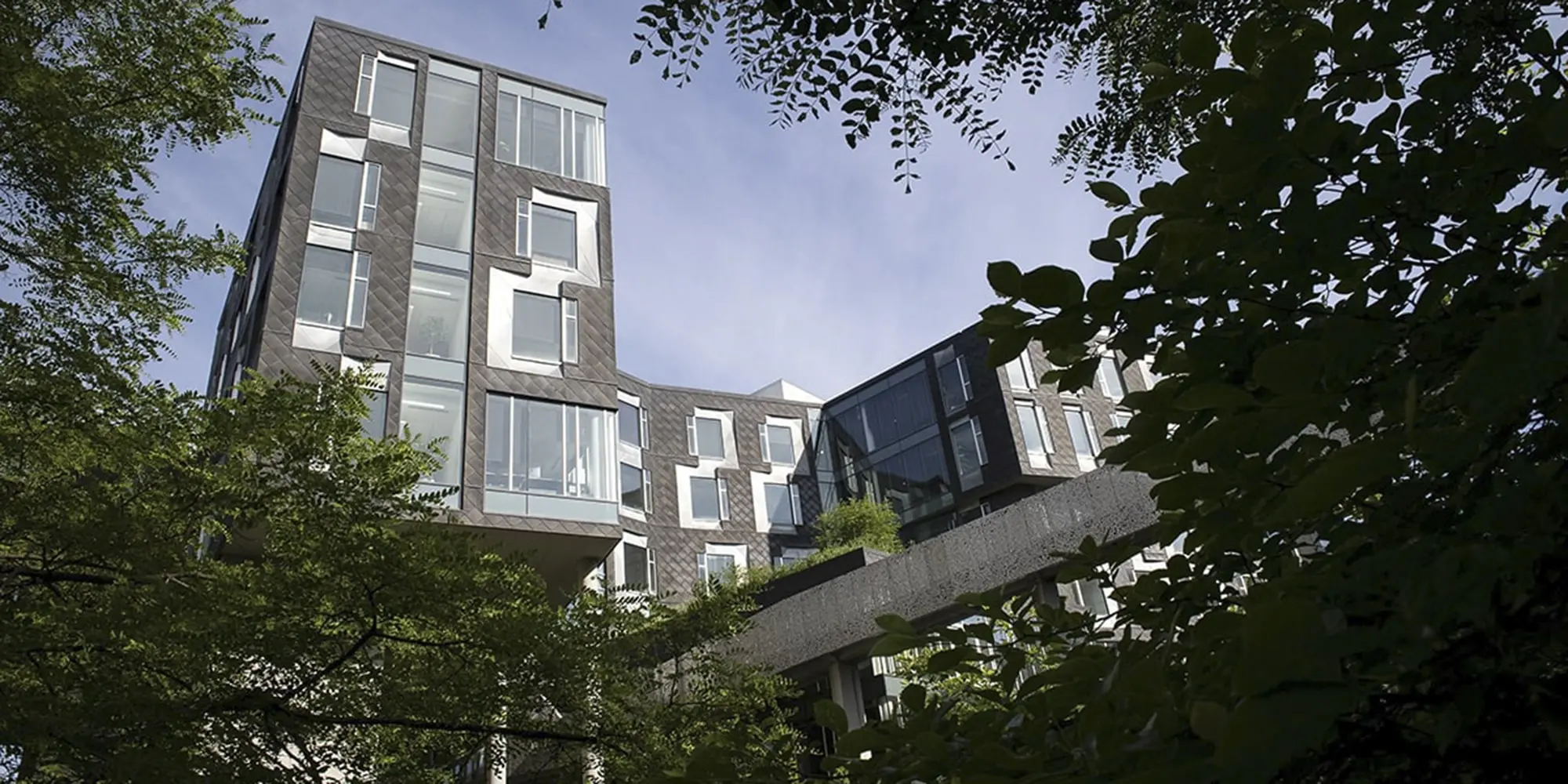
'Walking the Walk' Toward a Cleaner Planet
Media Inquiries
Carnegie Mellon University's commitment to clean energy and sustainability is evident across its beautiful Pittsburgh campus. CMU is "walking the walk," and it's not going unnoticed.
Its latest endorsement comes from the U.S. Department of Energy, which has chosen to partner with CMU to host the 2022 Global Clean Energy Action Forum(opens in new window), Sept. 21-23, in Pittsburgh. The forum will bring together energy leaders from around the world to discuss ways to turn ambition into action to accelerate the transition toward a more secure energy future.
"CMU's mission to impact society through technology, education and innovation is a perfect match with the forum's goal to take decisive action to recast the future," said CMU President Farnam Jahanian(opens in new window), a co-chair of the forum's host committee. "While CMU researchers, students and faculty have created innovations in sustainability that are being applied globally, our community is also focused on putting these innovations into practice right here on our campus."
In 2019, CMU Provost James H. Garrett Jr(opens in new window). announced the creation of a campus-wide Sustainability Initiative(opens in new window) to strengthen the university's commitment to sustainability, aligning the university's education, research and practices to the 17 Sustainable Development Goals(opens in new window) (SDGs). Garrett named Steve Guenther(opens in new window), university engineer and assistant vice president for Facilities Management and Campus Services(opens in new window) (FMCS), to head up green operations.
"We're building on 20 years of green practices at CMU," Guenther said. "It's wonderful to be part of an engaged campus community that values sustainability and encourages innovation. We keep focused on foundational elements like waste diversion, green cleaning and energy management, while continuously testing new ideas to reduce our environmental footprint."
Earlier this year, CMU earned its second consecutive gold rating(opens in new window) from the Association for the Advancement of Sustainability in Higher Education (AASHE). The association's Sustainability Tracking, Assessment and Rating System (STARS) ranks performance in five categories: Academics, Engagement, Operations, Planning and Administration, and Innovation and Leadership.
Can Pittsburgh save the planet?
— Carnegie Mellon University (@CarnegieMellon) August 22, 2022
With international energy leaders and delegations coming to Pittsburgh in September for the Global Clean Action Energy Forum, which Carnegie Mellon is co-hosting with @ENERGY, we certainly think so.https://t.co/ruZIE28A3W
"Our actions on campus must reflect our ambitions to impact the world," Jahanian said. "Our university's participation in STARS is a great example of our community's shared responsibility and accountability in creating a more sustainable planet."
CMU scored the highest in the academics and engagement categories. More than 48% of CMU undergraduate and graduate course offerings(opens in new window) map to at least two of the 17 SDGs, based on an innovative mapping tool(opens in new window) created by a CMU student.
"While CMU researchers, students and faculty have created innovations in sustainability that are being applied globally, our community is also focused on putting these innovations into practice right here on our campus." — Farnam Jahanian
CMU also scored high in the innovation and leadership category with its Voluntary University Review(opens in new window) (VUR), a first-of-its-kind report that developed a snapshot of activities related to the SDGs. The VUR revealed that between 2018-20, 45% of CMU research publications contributed to SDG #7, Affordable and Clean Energy.
Alexandra Hiniker(opens in new window) created the concept of the voluntary review at the city level and oversaw the process for New York City in 2018 and 2019. She joined CMU in 2020 and is now CMU's director of Sustainability Initiatives.
"In the first phase of the Sustainability Initiative, we identified so many ways that students, faculty and staff are already contributing to all 17 Sustainable Development Goals," Hiniker said. "This fall, we'll be opening the Sustainability Studio, where we'll have the opportunity to make connections across campus to help achieve this ambitious commitment to make the world more sustainable for all."
Hiniker said the Sustainability Studio will be a space for the CMU community to informally connect, discuss and collaborate across disciplines and schools to help achieve the SDGs.
Carnegie Mellon has been a green power campus since 2011. More than a decade ago, CMU began purchasing Renewable Energy Credits (RECs) for 100% of its energy consumption. Over the last five years, the university has purchased all its electricity from renewable sources, such as wind, solar, geothermal, biogas, biomass and low-impact hydro.
A flower bed on the Tepper Quad.
Students pass a sunny afternoon on the Cut.
More than two decades ago, in 2001, the university made its first green power purchase, which represented 5% of its usage — at the time the largest-ever purchase of wind-generated electricity in America. CMU earned an Environmental Protection Agency (EPA) Leadership Award for its purchase of wind energy.
CMU ranked 12th in the EPA's list of top 30 green power universities(opens in new window) in July. Last fall, the university was ranked 11th. Using green power has helped CMU reduce its greenhouse gas emissions by 72% since 2005.
Carnegie Mellon has adopted the U.S. Green Building Council's Leadership in Energy and Environmental Design (LEED) rating system for major construction and renovation projects. Currently, there are 25 LEED certified buildings on campus with 13 earning LEED Gold status for their energy efficiency and sustainability. Fifth and Clyde Residence Hall, which opened in fall 2021, is the latest CMU building to achieve LEED Gold certification. CMU was recently listed in the 2022 AASHE Sustainable Campus Index(opens in new window) as a top performing university in the buildings category.
Earlier this year, CMU began offsetting the carbon emissions from university-sponsored air travel by supporting a project that is capturing and reusing methane gas at a Pennsylvania landfill to generate clean power.
"By using the university's central reservation system, Collegiate Travel Planners (CTP), FMCS can get a clear report of the carbon footprint associated with university-sponsored air travel," Guenther said. "The carbon offsets have been centrally procured by FMCS and apply against the travel footprint."
Guenther said the approach is similar to purchasing green power for the university with renewable energy credits.
Learn more about the Global Clean Energy Action Forum(opens in new window).
